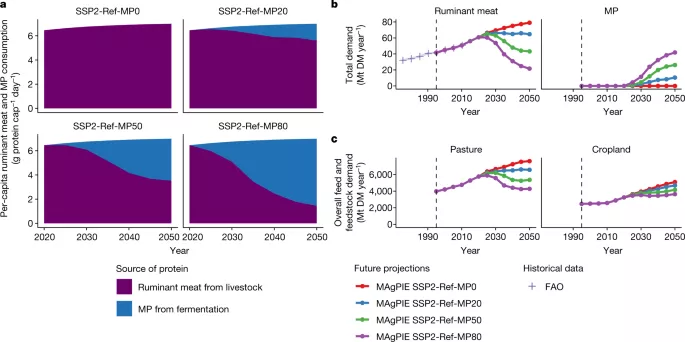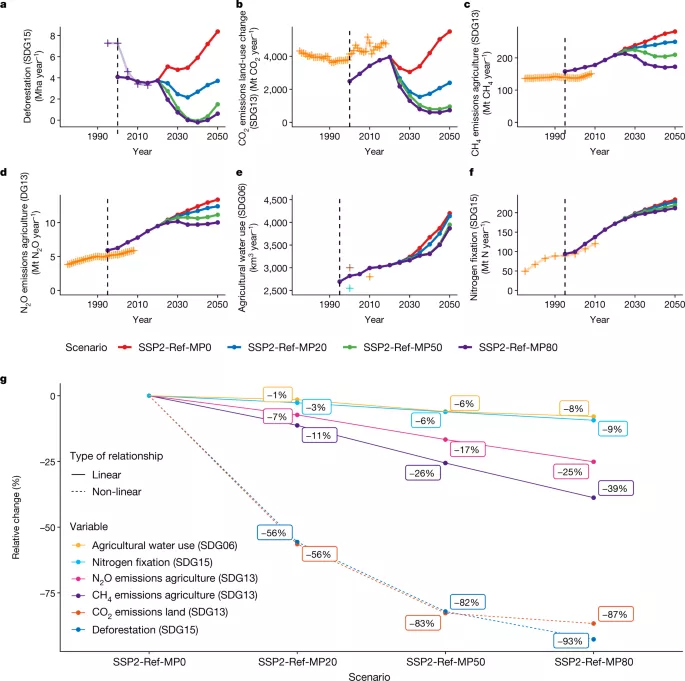Beef cattle farming is the main driving force of global deforestation, and cattle farming is the main source of methane. Florian humpen, corresponding author of the study and sustainable development scientist of the climate impact Institute in Potsdam, Germany? Der said replacing beef with meat substitutes might reduce some of the environmental footprint of food production, but it would not solve the climate crisis and should not be seen as a panacea.
Previous studies have shown that replacing beef with a meat substitute called mycoprotein can be good for the environment. Mycoprotein is produced by fermenting a soil fungus with glucose and other nutrients as food source in steel tank. It first appeared in Britain in the 1980s.
Franziska gaupp, a food system researcher at the Potsdam Institute of climate impact, said that the previous analysis did not consider the changes of population growth, food demand and other socio-economic factors. The study assessed the environmental impact of partially replacing beef with mycoprotein over time for the first time.

Using a mathematical model, the researchers considered population growth, income and livestock demand between 2020 and 2050. Under business as usual, the increase in global beef consumption will need to expand the area of grazing pastures and cultivated land for feed production, which will double the annual rate of global deforestation. Methane emissions and agricultural water use will also increase.
The researchers found that replacing 20% of the world's per capita beef consumption with mycoprotein by 2050 would reduce methane emissions by 11% and halve annual deforestation and related emissions, compared with business as usual. If 50% of beef consumed per capita is replaced by bacterial protein, deforestation and carbon emission will be reduced by more than 80%. Replacing 80% of beef with bacterial protein will eliminate about 90% of forest loss.

Humpen? Der said that the measure has a great impact on the mitigation of deforestation, because in this case, the global demand for beef will not increase, so there is no need to expand the area of pasture or cultivated land.
Hanna tuomisto, who studies sustainable food systems at the University of Helsinki, said the team's global assessment could help highlight more sustainable ways of food production. She pointed out that producing bacterial protein requires more power than beef, so researchers should consider the environmental impact of producing additional power. She also said that replacing beef with mycoprotein means that some by-products of the cattle industry, such as leather and milk, may be produced in alternative ways that have an impact on the environment.
Related paper information: https://doi.com org/10.1038/s41586-022-04629-w
Author: Xin Yu source: China Science Daily